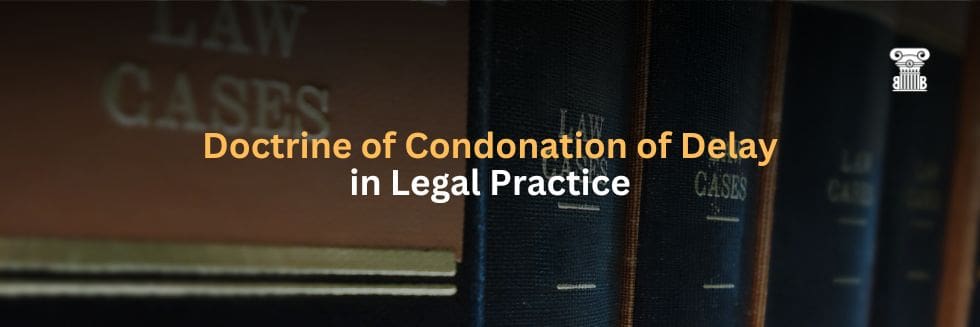What is a gift deed?
A gift deed is a legal document that represents a transfer of gift, either in the form of movable or immovable property, from one person to another, as per the provisions of the law. Section 122 of the Transfer of Property Act 1822, defines ‘Gift’ as a transfer of certain existing moveable or immoveable property made voluntarily and without consideration, by the donor, to a donee. A donor is a person who transfers the gift to another, while a donee is a person to whom the gift is being transferred. The Transfer of Property Act mostly governs the transfer of immovable properties between the living people; thus, it has a limited scope. The act also lays down that in cases of making a gift deed of immovable property, the property must be registered and the registered instrument must be signed by the donor and attested by at least 2 witnesses. However, in this case, the witnesses attest only to the fact that it was the donor who has signed the registration instrument but not to the actual details of the documents.
What is the movable property and immovable property?
It is necessary to determine which property is movable and which is immovable since both of these properties are guided by different laws such as limitation period, registration, transfer of property. Similarly, the word ‘property’ includes not only the corpus or the physical thing but also all the rights which are attached to it. Although the Transfer of Property does not define the terms movable/immovable property, however, under the Registration Act 1908, Section 2(6) defines “immovable property” as land, buildings, hereditary allowances, rights to ways, lights, ferries, fisheries or any other benefit to arise out of the land, and things attached to the earth, or permanently fastened to anything which is attached to the earth, but not standing timber, growing crops nor grass. Whereas, under the General Clauses Act 1897, Section 3(19) defines “immovable property” include land, benefits to arise out of the land, and things attached to the earth, or permanently fastened to anything attached to the earth. Section 3(26) of the General Clauses Act defines “movable property” as the property of every description, except for immovable property. Similarly, Section 2(7) of Sales of Goods Act 1930, states “goods” means every kind of movable property other than actionable claims and money; and includes stock and shares, growing crops, grass and things attached to or forming part of the land which is agreed to be severed before sale or under the contract of sale.
Transfer of Ownership
Once the transfer of a gift deed is accepted by the donee, the ownership of the property transferred, changes completely from the donor to the donee, i.e. from being the legal title of the donor to the legal title of the donee. The rights may be either absolute or conditional, and the property may be movable or immovable, present or future. In the case of movable property, the transfer may be effected either by a registered instrument, signed as aforesaid or by delivery of movable property which might include goods as defined under Section 2(7) of Sales of Goods Act. Nonetheless, this choice of method and mode of delivery of movable property was introduced, only after the honorable apex court’s judgments. Once a gift deed of immovable property is executed in favor of any recipient, the donor does not have the right to revoke or cancel the deed at a later stage unless there is a specific clause mentioned in the deed. Section 126 of the Transfer of Property Act provides for a situation wherein a gift deed may be revoked by the donor. Like a sale deed, a gift deed contains details of the property, the transferrer and the recipient. But instead of sale consideration in a sale deed, a gift deed allows you to transfer ownership without any exchange of money. Registering a gift deed with the sub-registrar is mandatory as per the provisions of section 17 of the Registration Act 1908, and section 123 of the Transfer of Property Act.
Revocation
Section 126 talks about the revocation of a gift deed and lay down its essential ingredients of the same: –
- The donor and the donee must have an agreement wherein the gift can be revoked on the happening or non-happening of a specific event.
- The happening of the event must not depend on the donor.
- The condition regarding the revocation must be made clear to the donee and the same must be accepted by him at the time of accepting the gift.
- There must exist a ground, except want or failure of consideration, on which a contract maybe rescinded.
- Such a condition should not be illegal or immoral and should not have ill effects on the gift property.
- Section 126 is controlled by sec. 10. As such, a clause in the gift deed completely prohibiting alienation is void in view of the provisions contained in sec 10.
- A bonafide gift cannot be canceled unilaterally. The court needs to be involved to revoke a bonafide gift.
- A gift deed has a limitation period of 3 years, meaning if no acceptance has been within 3 years of the completion of the registration instrument.
When would be a gift deed be void?
Section 125 lays down that if a gift deed has been made in the favor of two or more donee’s and one of them refuses to accept it out of their own free will, then the entire deed stands void. This is because the interest which he would have taken, had he accepted, becomes locked and non-transferable. This is also the reason why so many people prefer to pass down their property in gift deeds after their death rather than in wills, although a will is made specifically for this purpose, as once interest is laid down in a gift deed, no valid action of law can change or alter it in any form. Thus, people generally prefer a gift deed to avoid disputes within the family, regarding the property given to one person or the other, the downfall to this is that after the creation of interest in the gift deed even the donor is powerless to change any of its terms and conditions.
Further, it has to be duly noted that contracts with minors are void ab intio as has been given under the provisions of the Indian Contract Act, 1872. Under no circumstances, a minor can be eligible to be a donor and hence a gift deed where the minor is the transferor is void in the eyes of law. Although, in cases where the minor is a donee, the natural guardian of the minor has the right to accept the gift on his/her behalf. If absolute devastation of the ownership of the donor does not take place then the gift deed is held to be void. All details of the gift deed necessarily have to be there, if the gift deed is incomplete and the title remains with the donor then the gift deed is considered to be null and void, (the necessary details have been talked about in this section itself). Another ground for the gift deed to be null and void is that if the deed is executed without the appropriate authority.
Any immovable property when has to be transferred by gift has to be done with the creation of a gift deed. The sample of the same can be found online as well as in the Sale of Goods Act, 1930 as the format for a gift deed and a sale deed are almost identical to one another.
Some of the mandatory clauses for a valid gift deed are as follows: –
- Consideration clause – Clear mention of the absence of any fiscal or physical advantage should be made otherwise it would be considered as a sale.
- Possession of Property – The donor must have legal possession of the property in question i.e. he should be the titleholder otherwise it is not yours to give.
- Free will – there should be an absence of coercion, threat or fear on either the donor or the donee’s behalf.
- Information about the property – A detailed description should be available to all the parties of the transaction.
- About Donor and donee – Information about the relationship between the donor and donee should also be made available as many states offer a concession on stamp duty in case of blood relatives.
- Rights and Liabilities – The text should clearly mention the rights and liabilities of the donor as well as the donee and it is the duty of the donee to ensure that this does not get lost in the fine text of the contract.
- Delivery – The mode, method, and date of delivery should be clearly mentioned.
- Revocation clause – Though not compulsory, it is still advisable to prevent any future complications.
All registrations made In Chandigarh have to be made in accordance with the Registration Act, 1908 and all records are kept at the Sub-Registrar’s office.
The procedure of Deed Registration
- The document of transfer of property will be a permanent record once if it is registered in the concerned office of Sub-Registrar.
- Anyone can inspect a public record of the transfer of land/property and a proof of the document can be obtained from the relevant Sub-Registrar office.
- The listing of the property is providing the details to the general public that the owner has transferred to the buyer by the owner.
- If any person intends to buy a property, they can check or verify records available in the sub-registrar office. Such a person can review in whose name the last transfer deed has been registered.
- If the land is agricultural land, you can verify the revenue record as khata, khatoni/khasra of the land and title deed.
Documents required
- An original and a duplicate copy of the certificates is mandatory for the registration.
- 2 passport size photographs of all parties, each of the sellers, buyers, and all the witnesses.
- Photo identity proof (voter’s ID card and passport of the buyer, the seller, and all the witnesses)
- Certified copies of documents of incorporation of both buyer and seller, in case of a company and not an individual buyer.
- Proof of the land register card to indicate that the land/property does not belong to the government (it can be received from the City Survey Department).
- Proof of municipal tax bill to mention the year in which the land was built/ constructed.
- Proofs of the PAN cards of all the parties are obligatory.
- Photographs and signatures of all parties are mandatory.
Criteria and Stamp duty for a valid gift deed in Chandigarh
- For a property to be registered in Chandigarh, the parties to the transaction must be residents of Chandigarh. The rural inhabitants of the state must be in the custody of Certificates of Identification (COI).
- Rate of the stamp duty in Chandigarh is the same for sale deeds as well as gift deeds i.e. 6% and although some states like Punjab excuses the stamp duty completely if the transfer of property is between blood relatives but no such provisions have been made in Chandigarh. The registration fees leviable of a gift deed are 1% of the value of the document, subject to a minimum of Rs. 50 and a maximum of Rs. 10,000.
Case laws
The Bombay provincial court in the Nana Bin Lakshman And Ors. vs Anant Babaji, laid down that registration of gift deed becomes necessary if the value of the property being gifted is more than Rs.100.
In Sehdev Singh Verma v JPS Verma and another, the court held a gift deed void by upholding Transfer of Property Act, stating that future property cannot be transferred as a gift deed.
It was the landmark case of Commissioner of Income Tax Kanpur v. Dr. R.S. Gupta, that in case of movable property the transfer is complete by delivery and hence registration is optional.
(This article has been written and submitted by Mr. Arsh Singh during his course of internship at B&B Associates LLP. Mr. Arsh Singh is a 3rd Year (6th Semester) law-student at Army Institute Of Law, Mohali.









